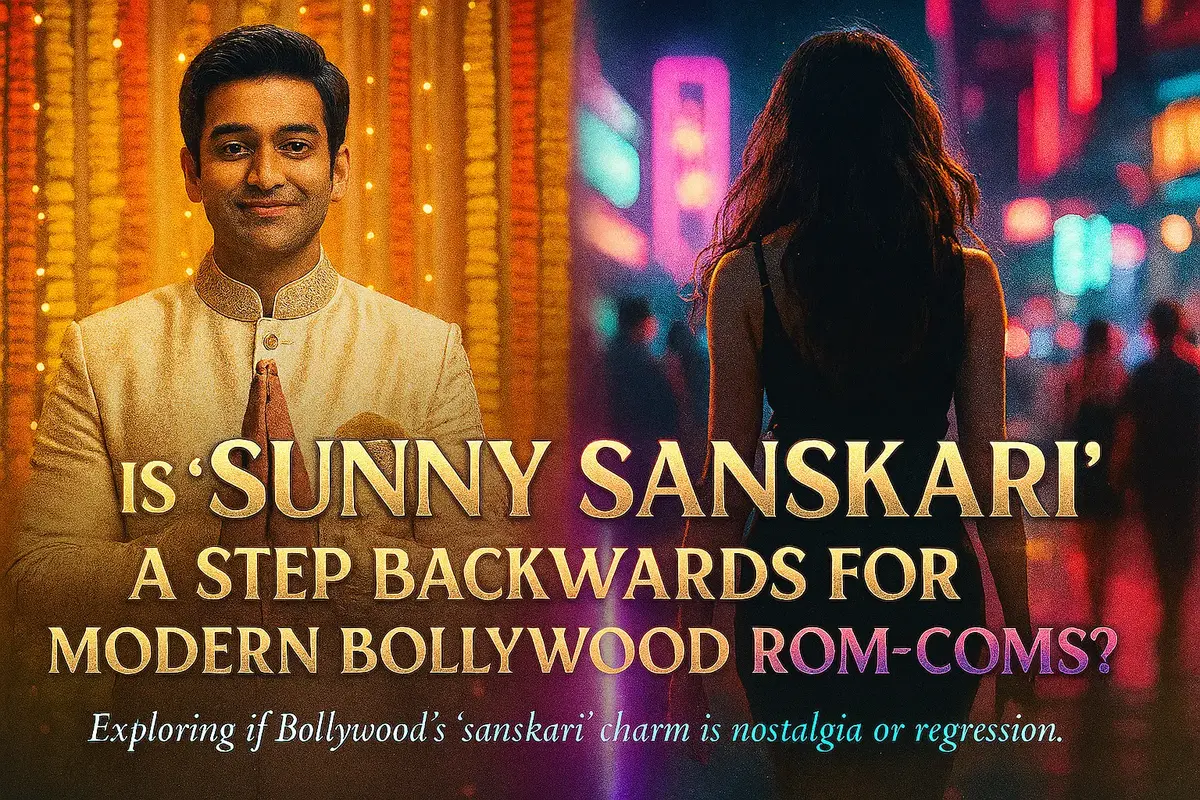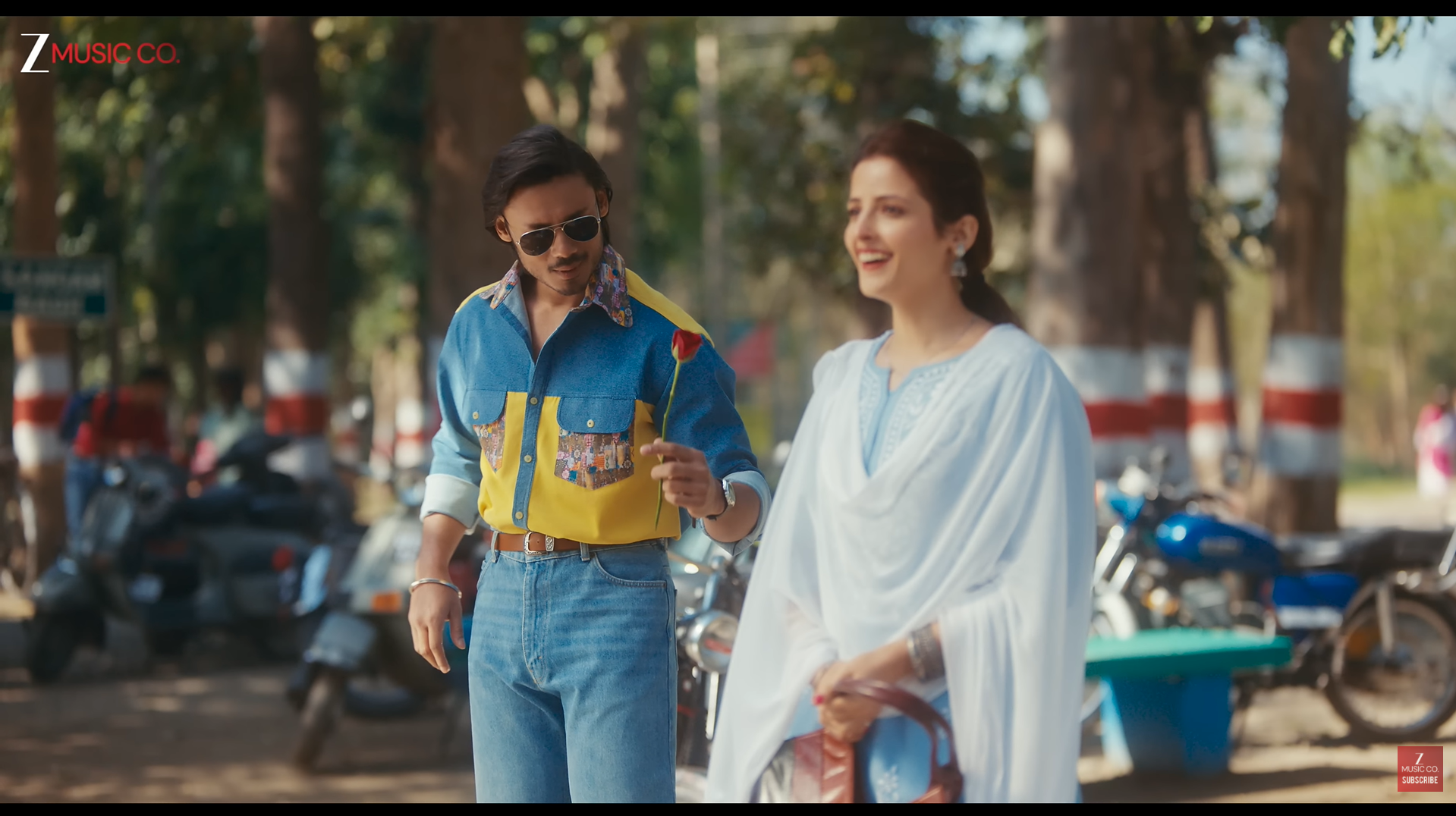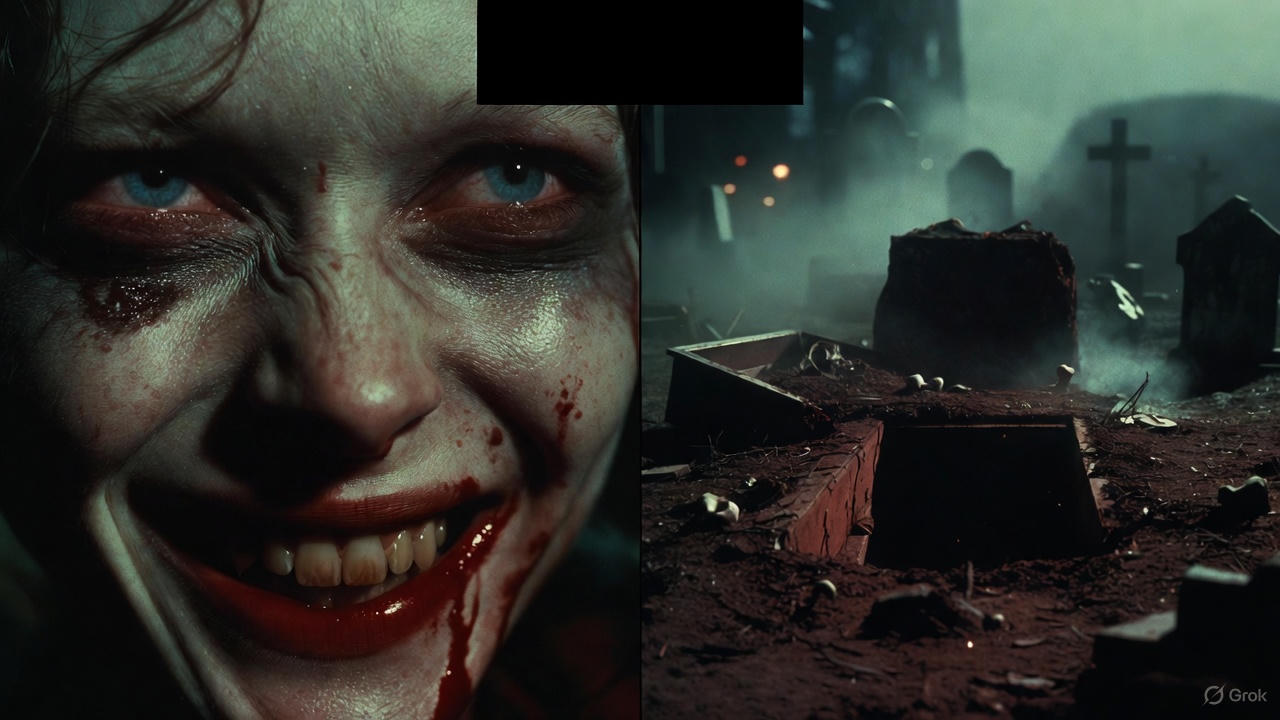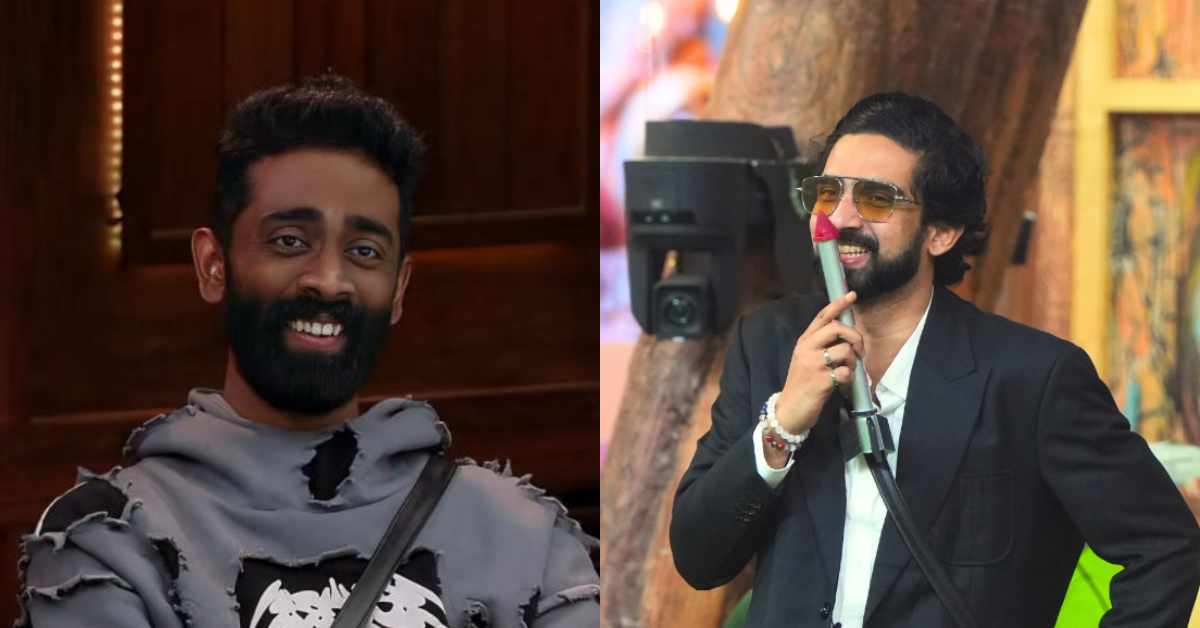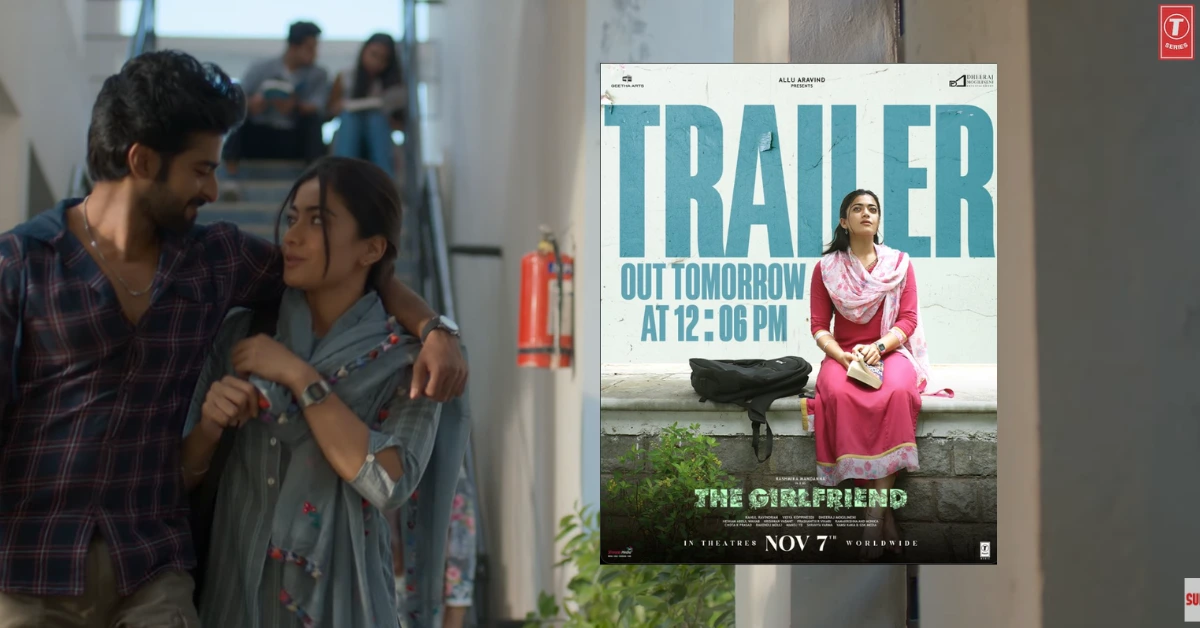Introduction
In an era where Bollywood rom-coms are finally exploring complex, modern relationships in films like Tu Jhoothi Main Makkaar and celebrating female agency, the title alone of Sunny Sanskari Ki Tulsi Kumari feels like a record-scratch moment. The word “sanskari”—loaded with connotations of traditional, patriarchal values—instantly raises a provocative question: Is this a tone-deaf step into the past, or is there something more clever at play?
The film, released on October 2, has ignited a fierce debate online and among critics. One camp sees it as a disappointing return to regressive family-drama tropes, while the other suggests it might be a self-aware satire, poking fun at the very clichés it seems to embrace. With its glossy Dharma Productions aesthetic, grand wedding sets, and a plot centered around sabotaging exes’ weddings, the film walks a dangerously fine line. So, which is it?
The Argument for a Step Backwards
For many viewers, the film feels frustratingly outdated. The central premise revolves around Sunny (Varun Dhawan) and Tulsi (Janhvi Kapoor), who, after being left by their respective partners, team up to win them back. The narrative leans heavily on familiar, and some would say tired, plot points: family pressure, the importance of marrying into a wealthy family, and grand, dramatic declarations of love at inconvenient times.
Critics of the film point to scenes where characters seem to prioritize family “honor” over personal happiness. There’s an awkward and unnecessary scene, as one review noted, where the female leads engage in a bizarre “cleavage showdown” in a restroom, which feels more juvenile than comedic. For a modern film, these moments can feel jarring and out of touch with a youth audience that increasingly values independence and self-discovery over conforming to tradition. The very idea of a male protagonist proudly brandishing the “sanskari” label feels like a retreat from the more nuanced, flawed, and realistic male characters we’ve seen in recent years.
The Case for Self-Aware Satire
However, another school of thought argues that director Shashank Khaitan, known for the Dulhania franchise, is smarter than that. This perspective suggests the film uses the “sanskari” theme as a trojan horse for satire. The over-the-top family drama, the almost cartoonishly loud relatives, and the sheer extravagance of it all could be an intentional parody of the 90s’ Sooraj Barjatya-style cinema.
Evidence for this lies in the film’s witty, 2025-coded dialogue, which is peppered with cheeky references to iconic Bollywood moments and social media trends. Sunny’s “sanskari” persona is so exaggerated at times that it feels like a deliberate caricature of the “ideal Indian son.” The plot itself—two people faking a romance to make their exes jealous—is a classic, almost cliché, rom-com setup. By pushing these familiar tropes to their most illogical and chaotic conclusions, the film could be winking at the audience, fully aware of the absurdity.
The Overacting and Exaggerated Tropes
The performances themselves lend weight to the satire argument. Both Varun Dhawan and Janhvi Kapoor deliver moments of heightened, almost theatrical, acting. As one review from Aaj Tak mentioned, their characters’ “overacting” in front of their exes is a key sequence. Is this just poor acting, or is it a deliberate choice to showcase the ridiculousness of the situation their characters have created? The film constantly plays with this ambiguity.
A Confused Climax Undermines the Debate
Unfortunately, where the film ultimately falters is in its climax. Several critics have pointed out that the final act is rushed and illogical, abandoning the clever buildup for a convenient, fairy-tale ending. This lack of a clear, decisive resolution undermines both potential interpretations. If it was meant to be a straightforward regressive rom-com, the ending feels unearned. If it was intended as satire, it pulls its final punch, refusing to fully commit to the critique.
Does it Break New Ground?
While the film has its entertaining moments and Varun Dhawan’s comic timing is often on point, it fails to offer anything truly new. It revisits the well-trodden ground of “Humpty Sharma Ki Dulhania” but with less emotional depth. The core idea of fighting for love against family pressure gets lost in a script that, according to the Hindustan Times, “suffers from a lack of clarity.”
Final Take: A Missed Opportunity
So, is Sunny Sanskari Ki Tulsi Kumari a step backward? The answer is, frustratingly, a bit of both. While it seems to be aiming for self-aware satire, its muddled execution and reliance on outdated tropes make it feel regressive at times. It entertains in flashes but ultimately gets caught between mocking tradition and celebrating it. In the end, it’s not a bold step backward or a clever leap forward; it’s a hesitant shuffle sideways that leaves you wondering what it was trying to say in the first place.
